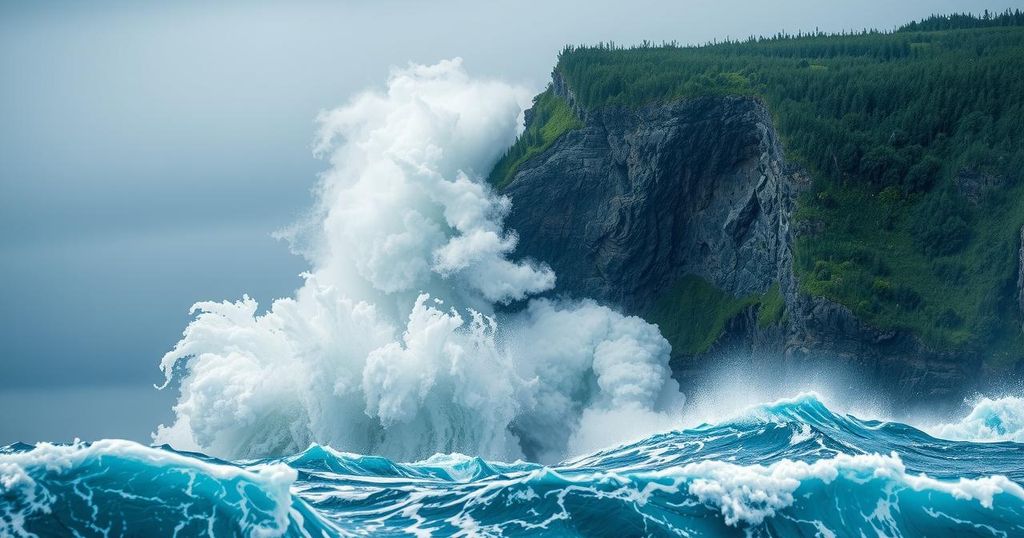Cyclone Chido: Mayotte Faces Catastrophic Impact from the Strongest Storm in 90 Years

Cyclone Chido has hit Mayotte, the strongest storm to strike in over 90 years, potentially causing hundreds of fatalities and extensive damage. This humanitarian disaster prompts a significant response from French authorities and aid organizations as they grapple with the aftermath and provide critical support to the affected populations.
Cyclone Chido has devastated the French island of Mayotte, marking it as the strongest storm the region has faced in over ninety years. Reported implications indicate that the cyclone, which struck on Saturday, could potentially claim the lives of nearly a thousand individuals. As Mayotte grapples with the fallout from this disaster, it joins neighboring islands of Comoros and Madagascar in dealing with severe disruptions due to the storm’s impact. The United Nations Children’s Fund (UNICEF) reports considerable destruction of infrastructure, including homes, educational institutions, and medical facilities, and emphasizes the urgent need for additional support to ensure the continuity of essential services.
The catastrophic event has prompted a significant logistical response from the French government, deploying approximately 1,600 police and gendarmerie personnel, alongside rescue teams from both Mayotte and the nearby island of Reunion. Supplies are being expedited via military aircraft and ships to assist in relief efforts. Francois-Xavier Bieuville, Mayotte’s prefect, provided sobering updates, stating, “I think there are some several hundred dead, maybe we’ll get close to a thousand, even thousands… given the violence of this event,” underscoring the tragic scale of the disaster.
Cyclone Chido represents a significant climatic event for Mayotte, a French overseas department characterized by various socio-economic challenges, including poverty, underinvestment, and violence. The islands have experienced recurrent droughts over the years, which have exacerbated their vulnerability to natural disasters. Cyclones are categorized by different terminologies based on their geographic location, with this particular storm being classified as a cyclone due to its occurrence in the South Pacific and Indian Ocean regions. Understanding the formation of cyclones, which typically arise over warm ocean waters and lead to catastrophic impacts upon landfall, is crucial to an analysis of this disaster’s ramifications.
In summary, Cyclone Chido has wrought unprecedented devastation on Mayotte, displacing thousands and precipitating a humanitarian crisis in a region already beset by challenges. The international and local response to the cyclone’s aftermath will be pivotal in rebuilding efforts and in providing the necessary support to those affected. The storm highlights the increasing risks posed by climate change, which compounds the vulnerabilities of regions like Mayotte that are already in distress. United Nations and French authorities are mobilizing resources to address immediate needs and restore some semblance of stability amidst a growing crisis, illustrating the critical importance of external support in combatting the consequences of natural disasters.
Original Source: news.sky.com








